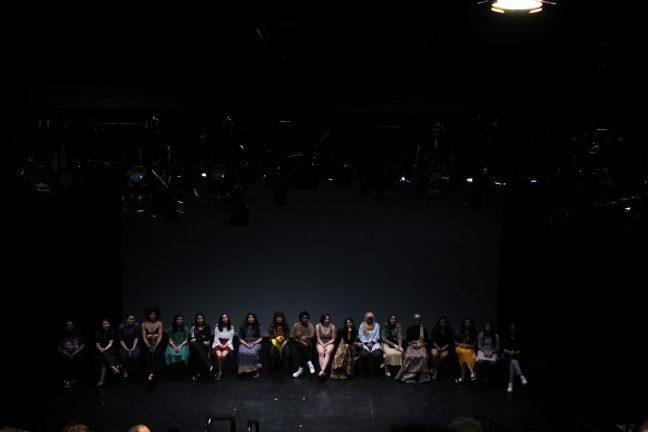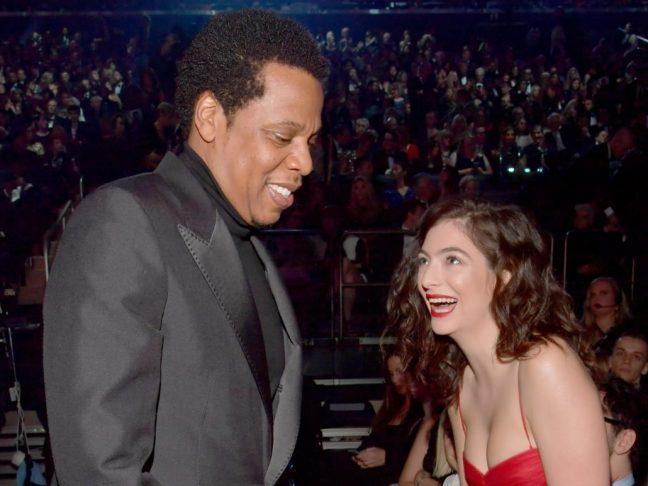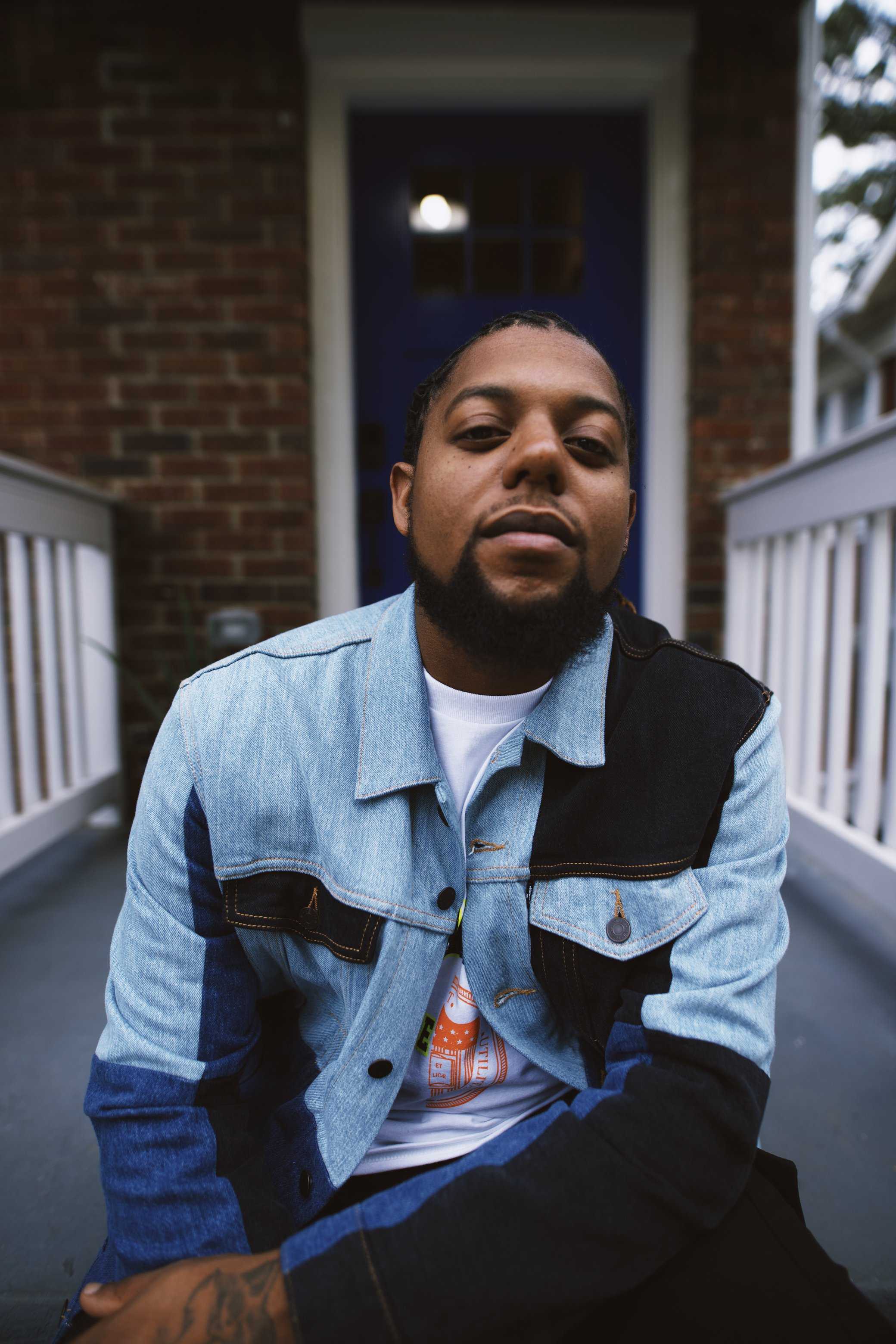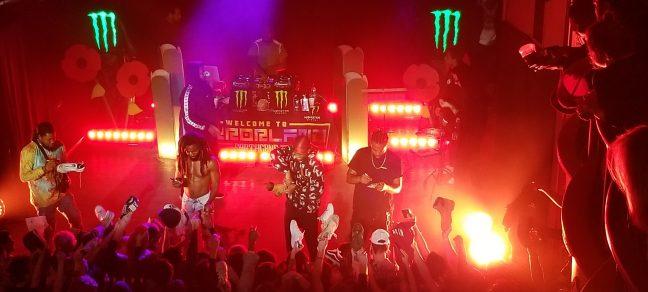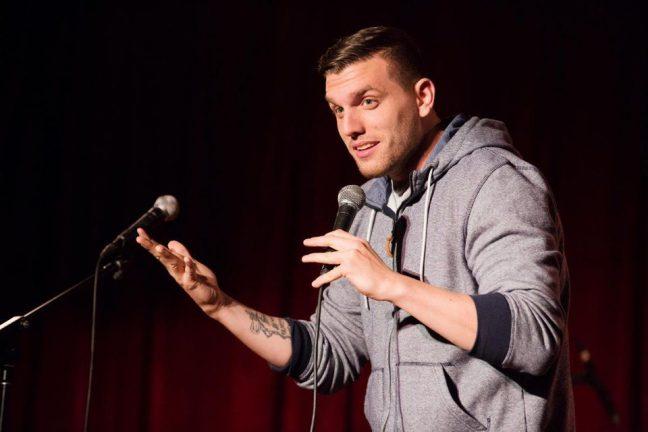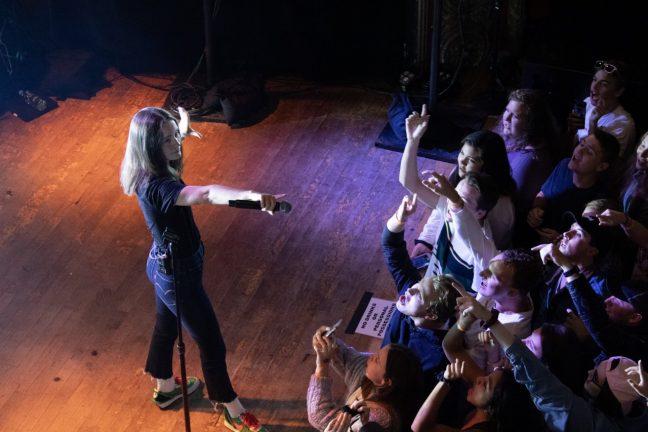On April 26 and 27, Yoni Ki Baat returned for it’s ninth year at the University of Wisconsin. Fellow community members came to Fredric March Play Circle to hear several women and non-binary individuals share their experiences as people of color.
This year’s program featured 18 diverse artists from around campus and the Madison area. Both performances were free and open to the public, and when the doors opened at 7 p.m., the theater was filled not long after.
Yoni Ki Baat evolved from Eve Ensler’s Vagina Monologues of the 1990s as an opportunity for feminists of color to have a space to share their stories that tend to be overlooked. Performances consisted of monologues, songs and spoken word of poetry highlighting parts of the experiences that shaped their identities.

“Yoni Ki Baat is a nice way I can connect with people of color who can relate to my experiences” Saja Bilasan Abu-Hakmeh said, a second year performer and the show’s co-director.
Abu-Hakmeh’s piece, “Olives, Honey and Light” focused on body issues and the consequent eating disorders that arise. As a daughter of immigrants who has been exposed to the cultures in Palestine and America, she was able to relate the beauty standards of both homes to how they have shaped her own image.
“It’s a great way for me to channel my frustrations — it’s a healing process.” Abu-Hakmeh said.

Though each story may have been rather emotional for many performers and audience members, everyone remained supportive. Host and former student Anjali Misra was right with the audience all night to provide comfort and solace for some of the tough emotions the audience felt themselves undergo after each performance.
This was Misra’s sixth year hosting and co-producing Yoni Ki Baat because she loves what the experience and the people bring each time. The group is different every year, but the passion and energy remained abundant.
“I didn’t realize how great [YKB] would be until I was in it, but here I am feeling the most love that I have ever felt,” Varshaya Visvanathan said, a second time performer and fifth year student in the Master of Accountancy program. “This is a group of really down to Earth, relaxed supportive humans. They are all amazing and have this ability to take me from my worst mood to my best in just a couple of words,” Visvanathan said.
August shop to be part of Madison community, deter other retailers from conforming
Visvanathan’s piece titled, “The Antagonists of My Worst Nightmare” focused on sexual assault and how it is viewed in Indian communities. Her story delves into the relationship between a parent and child understanding what love is, and the ways they chose to depict their love.
Honesty shone through Visvanathan’s performance and this seemed to be a common theme among the other performers as well. Everyone was willing to reveal the vulnerabilities in order to communicate their heart wrenching stories.
“People share sensitive things and it ends up being a space for us to express what’s going through our minds that we don’t actually get to talk about,” Visvanathan said.
WUD Distinguished Lecture Series hosts sociologist, poet Eve Ewing
The night was full of intense performances which included a group piece for the first time. “If you’re nasty” ended the first half of the night strong with a letter to white feminists. The performers walked off stage leaving the audience with an understanding that intersectional feminism is the only feminism they have an interest in being involved with.
Yoni Ki Baat was originally created for South Asian women in the Bay Area, but has expanded its scope over the years.
“Something beautiful we’ve done with Madison’s collective is that we recognize we’re stronger together than we are apart,” Visvanathan said. “This is an extremely powerful experience because even our differences we are able to bring together and celebrate.”
Women of color’s significant actions mark Wisconsin Historical Society’s shift towards inclusiveness
The atmosphere of Yoni Ki Baat allows everyone to learn something new about themselves. It is not only an experience of growth for the performers, but for the audience too. If you missed the event this year, you will certainly want to attend in 2019.








